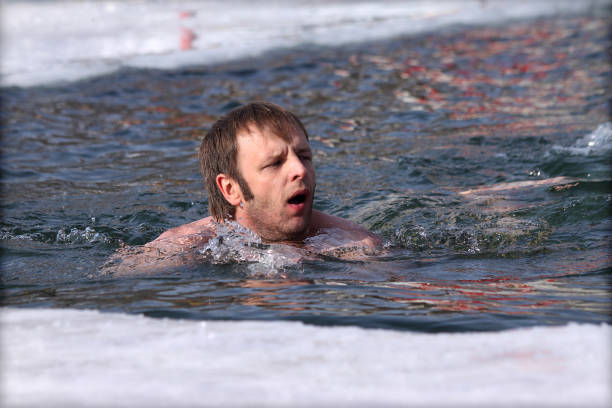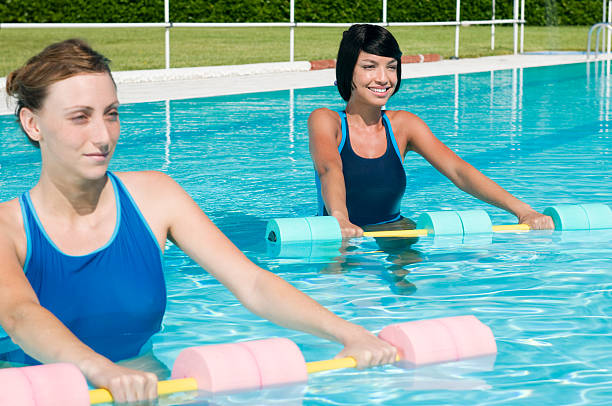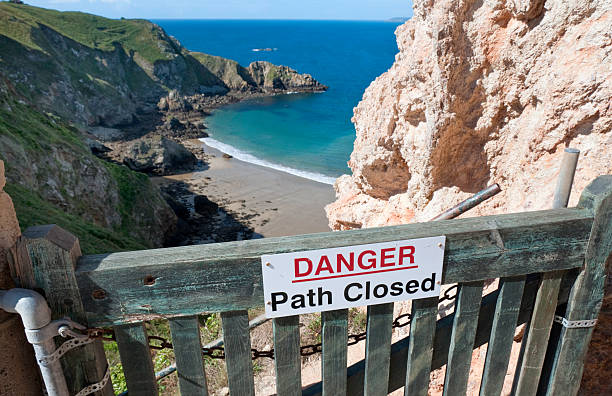Swimming can be an enjoyable activity for everyone who likes to exercise as long as you are in good health. People who work in leisure industries see adults and children with colds frequenting pools and are often given medicine to mask symptoms. Colds can cause several unpleasant symptoms. Determining the best time to stop swimming can be challenging if you do not want to lose valuable pool time. We explain why floating while sick is not a good idea.
Our parents, concerned about water safety at the time, told us that we should not swim immediately after eating. We worried that we might get cramps if we ignored their advice and ended up sinking like ravioli in water. Why does nobody warn us about the dangers of swimming while sick? It may not be life-threatening, or it doesn’t cause us discomfort. The downsides of swimming with a cold are numerous.
You run the risk, firstly, of exposing others to the cold. Germs and bacteria flourish in warm, moist environments. It is possible to spread infection through water and make other people sick. It’s a common misconception that chlorine will kill all bacteria. In some cases, it does. It’s surprising that some bacteria survive. This is how waterborne diseases and illnesses are spread.
Swimming can be a refreshing and enjoyable activity. However, when you have a cold, it is difficult to enjoy the experience because you usually do not feel like doing it. This will likely be a bad experience. A fever usually accompanies a cold. The water will therefore feel more complicated than usual. Contagiousness is present for three to four weeks after the first symptoms appear. Depending on the strain, they could be contagious up to three weeks. Most colds will usually clear up in a week.
Swimming can be beneficial for some, but not all. Water can help open up and wash out your sinuses. This is especially true for those with allergies. Increased blood flow, heat from the body and chlorine all work together to help clear your head. Congestion can have its own downsides for some people, even if they are suffering from a runny or sore nose. Congestion can make breathing difficult. Swimming and abnormal breathing are bad combinations. Congestion can also increase your heart rate.
You should not go swimming if you have a cold. You may feel better for a while but could feel worse. You’re more susceptible to getting another illness if you have a cold. A virus will compromise your immune system. It’s best to avoid any strenuous activities. You will recover much faster from the cold if you do not continue to exercise.
Swimming before symptoms are visible is unlikely to spread an infection or cause harm. If you are newly ill with a cold, avoiding swimming until you feel well enough to resume is best. You are responsible for taking precautions in order to not affect others. It is best to wait a week before getting back into the water to ensure the cold has passed. You will feel better more quickly and prevent others from getting sick due to your cold. You will have plenty of time to resume your swimming routine in the coming weeks. You could try an indoor activity or choose another alternative until you can swim again. Installing a humidifier will help you feel better at home if you have a cold. The humid air will improve your symptoms by opening your nasal passages.
Colds can be a real drag and can reduce your activity. However, if you refrain from swimming until the symptoms disappear, everyone will benefit. If you have a cold, waiting until the symptoms are gone before you get in the pool is best.





